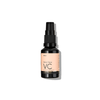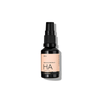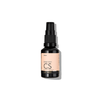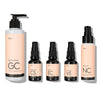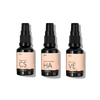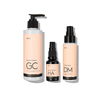How to take care of Sensitive Skin
5 Tips to Take Care of Sensitive Skin
Do you break out in hives when you wear clothes made from certain fabrics? Is your skin excessively dry and prone to reactions like skin bumps, erosion and pustules? Does your skin become red, swollen, or start to itch or peel when you are in specific environments?
If you answered ‘yes’ to the above questions, it’s highly likely you have sensitive skin.
However, sensitive skin in itself is not a disease; rather, it’s usually a symptom of another condition. It’s a good thing, though, medical conditions that can cause sensitive skin are rarely serious. Examples of these are allergic contact dermatitis, eczema, and rosacea.
Aside from medical conditions, genetics can also play a role in increased skin sensitivity. Exposure to certain environmental conditions, such as hot, humid, dusty, or windy weather, can also lead to sensitive skin reaction.
When you have sensitive skin, you start to feel like anything and everything can cause irritation. However, you can soothe and help improve the condition of your sensitive skin with these tips.

1. Choose all-natural, gentle skincare products
The first thing you need to do is to lay off aggressive skin care products. Whether you’re shopping for a facial cleanser, soap, moisturiser, cream, or exfoliant, opt for ones that are all natural or formulated especially for sensitive skin. These shouldn’t contain harsh chemicals, alcohol, parabens, petrochemicals, artificial colourants, fragrances, acids, and other synthetic ingredients that can cause skin irritation.
You should also steer clear of limestone, sponges, loofahs, and other hard exfoliating products. Instead, use products containing fruit acids, powerful antioxidants, and anti-inflammatory ingredients.
Think natural ingredients like milk, bee propolis, coconut oil, white tea, green tea, allantoin, aloe vera, chamomile, calendula, seaweed, rosewater, and oats. And remember, the fewer ingredients there are in a skincare product, the better for your skin.
2. Minimise your use of cosmetics
When it comes to makeup, the less you use, the better. But if you must wear makeup, always check the ingredients. Avoid ones that have chemical ingredients, artificial colourants, and preservatives.
To reduce irritation, go for silicone-based foundation, eyebrow fillers and eyeliner, as well as mineral-based powders. Also, do not use chemical-laden waterproof cosmetics, long-lasting bases or foundations, and complex anti-ageing products.
Never share cosmetics and makeup applicators with others and work on reducing your use of makeup if you cannot eliminate it entirely.
3. Use only gentle, fragrance-free soap
Although people notice that they have sensitive facial skin, they usually don’t give enough attention to the rest of their body. During baths or showers, use gentle, fragrance-free soap or cleansing milk, which is usually safe to use even on babies.
4. Have a healthy, well-balanced diet
Maintaining a healthy diet is beneficial not only to sensitive skin but also to your entire body. Ensure you have adequate daily intake of protein, vitamins, antioxidants, minerals, omega-3 fatty acids, monounsaturated fats, fibre, and healthy carbohydrates from whole foods. These nutrients work together to prevent dryness and irritation in your skin, and they keep it healthy and glowing.
The regular intake of anti-inflammatory foods will help reduce inflammation and manage skin sensitivity. These include garlic, turmeric, ginger, olive oil, tart cherries, spinach, sweet potatoes, avocadoes, walnuts, strawberries, and salmon.
Avoid foods that usually cause skin allergies or skin reactions. Poultry, eggs, certain seafood (e.g., crabs, shrimps), red wine, and soy-based and processed foods can cause skin flare-ups. Other foods to avoid, especially if you have gluten intolerance, include beer, cereals (products containing rye, barley, and wheat flour), and other gluten-based products.
5. Always do a patch test before buying any skincare products.
Aside from opting for skincare products that are natural and gentle or ones that are formulated for sensitive skin, always remember to test products first before buying them.
Do a patch test by applying some product on the inside of your wrist. Check for any reactions by keeping the product on for 24 hours. If you don’t experience any flare-up or reaction, then consider it safe to buy.
Know when it’s time to see a doctor
Whatever the cause of your sensitive skin, you can apply these tips to soothe and improve its condition.
However, if your skin sensitivity is already affecting your quality of life or becomes difficult to manage, consider discussing your condition with a health professional.
